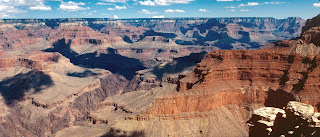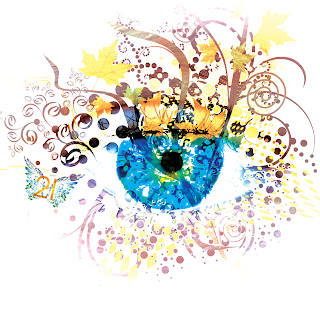I started writing grants back in the mid 90’s and it was a time I fondly think of as the “Golden Age” of grant writing. The government was using grants to experiment with new programs and do social and educational research. There was a lot of money out there. And there were a lot of clients.
A headline came to me via email this morning about proposed budget cuts to educational programs (
STEM Ed. Among Cuts Sought in Draft House Budget Plan). The article made me nostalgic for the Golden Age. I see bad news in that headline on several levels but on a business level, it’s another cut to the business I love, grant writing.
During the Golden Age, money was flowing and the streets were paved with gold. I grabbed the proverbial brass ring and launched into a full time grant writing job at a private company leaving the cushy, secure and boring existence of public employment.
I was suddenly working 60 hours a day. I was crushed with work. I was drinking from a fire hose. This went on for about a decade. I had no trouble getting contracts. I never marketed my services beyond handing out a business card (which I often forgot to carry).
Today, I spend part of my time writing copy for marketing. I’m pretty sure I stink at it. Oh, I have good ideas (I think) and I make cool graphics (I think), but the truth is that I am not an advertising Madman. Nonetheless, marketing is now an ongoing conversation here in the office. But I would much rather write grants full time. I know there’s supposed to be an ROI to Marketing, however, it never feels like it’s worth it. What happened to the fire hose?
The Golden Age of grant writing ended for social and educational programs for several reasons:
• After two decades of research (80’s and 90’s), the government “owns” the answers to all the important questions, it now knows “what works”. Grants encouraging innovation are no longer necessary. The focus of grants now is to implement everything they “discovered” during the Golden Age. Applicants these days are expected to implement “research-based” programs and “proven models” regardless of the lack of wisdom in forcing square pegs into round holes;
• The economy collapsed. Money shrank back from “the street” on all levels. The faucets got turned off in the private sector, the nonprofit sector, and the government sector. Everyone suffered and is still, grants are no different. The Golden Age ended in 2008;
• The market became flooded with “grant writers”. When I started, it was hard to find a grant writer so there was a gap in the market. I filled it. Today there’s a grant writer under every rock and some of them slithered in there and are none too ethical. You’ll read about these in the newspapers from time-to-time. It is also harder today to ferret out who is a good grant writer and who should be writing marketing copy. That’s because everyone’s success rate post-Golden Age has taken a hit. Fewer grants and more applicants means fewer applications are successful, it’s not calculus. Even a stellar writer can find his/her success rates falling. Success today is more dependent than ever before on having clients with the right need and the right demographic, geographic, and organizational profile.
I am still young (ish) and hoping to be around for the next Golden Age. It’s coming because the people are not too certain that the government really has the answers. That realization, I hope, encourages a new round of research to spur innovation and new ideas. Even if the “old” ideas worked back in the 80’s and 90’s, conditions continue to change, demographics shift, knowledge evolves, proclivities of the younger generation are not what they were in the 80’s. Learning styles, resources, technology and social needs evolve over time.
I hope that the melt-down of “No Child Left Behind” and the ever-diversifying demographics of the country are evidence that the next generation of researchers, teachers, social workers, and the like need grant funding to seek new answers. Bring on that next Golden Age, I need some relief from marketing.
Other posts you may enjoy:
Photo Credit – Macin Smolinski
Published by Creative Resources & Research http://grantgoddess.com










